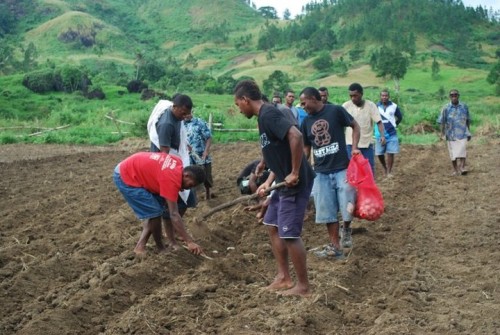The Nigeria Incentive-Based Risk Sharing System for Agricultural Lending (NIRSAL) says that, despite agriculture loan opportunities, lack of structure along the value chain has remained a major challenge to farmers needing finance.

Aliyu Abdulhameed, Managing Director of NIRSAL, made this made known at end of the 2019 Agriculture Summit Africa, organised by Sterling Bank in collaboration with the World Bank and other stakeholders.
The summit, with the theme: “Agriculture: Your Piece of the Trillion-Dollar Economy”, had over 2,000 participants with representatives from the US, Europe, Asia and some African countries.
Abdulhameed said that there was no proper structure along the various value chains from the small holder farmers to the market that would give financiers the confidence that their money would not be at risk.
He said until small holder farmers came together to form cooperatives that would on their behalf approach the banks for facilities, it would be difficult for them to do so individually.
Abdulhameed, who spoke on enabling the agricultural value chain, said banks were not charity and as such would always check risks before obliging funds.
According to him, structuring the various value chains across different aspects of agriculture including pre-stream, mainstream, midstream and downstream in a manner that banks will be assured that loan repayment will not be a problem is the way to go.
“Financiers are not charity because they have to check risks.
“There is competing demand for their dollar and for us to achieve this, we must tell ourselves the truth.
“We must agree that a small holder farmer trying to get N150, 000 as loan cannot get it, therefore at the small level holder there must be structuring.
“So, if 100 farmers who want to get N150, 000 each for instance come together to request for loan in bulk, it makes more sense.
“Then, there must be a direction in terms of product. For instance, these farmers should be into single commodity, they should also be in a location with a defined off taker and an aggregator that will aggregate their land for a single commodity.
“Our land use system is such that people do not have access to large land mass like Brazil, but we have to do something and then leverage technology to help the farmers.
“It does not stop there; banks will not finance even if you aggregate. So, what next?
“Even if after observing all of these and you get abundant yield, if you do not tackle post-harvest loss, you will not get the loan.
“Also, if the market is not organised, even if the yield is much it will not achieve result.
“Talking of market, we have different kinds of market including consumer market. But they are not structured, and banks will not risk their funds if they are not sure that all of these will translate to farmers being able to repay their loans.
“If we are able to achieve this, then the loan will be accessible,” he said.
Abdulhameed however gave the assurance that it was achievable, adding that NIRSAL was created to handle such concerns, saying it is was already doing so.
“NIRSAL is established to provide the necessary support and we are ready support borrowers to do that,” he said.
The two-day event is dedicated to creating a convergence of private and public sector players, investors and agriculture practitioners across the entire value chain to find ways of financing agriculture.
By Cecilia Ijuo
